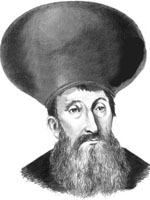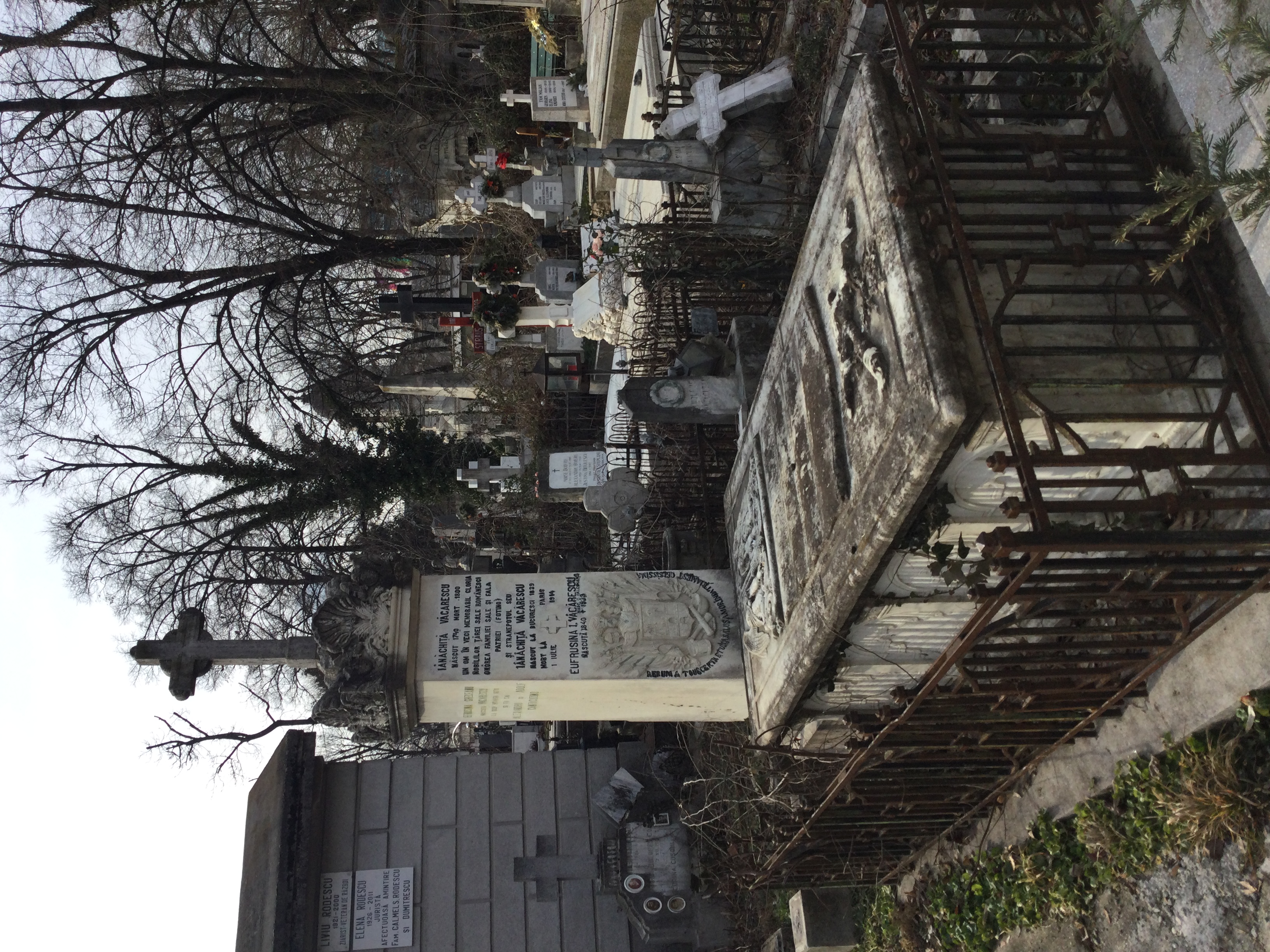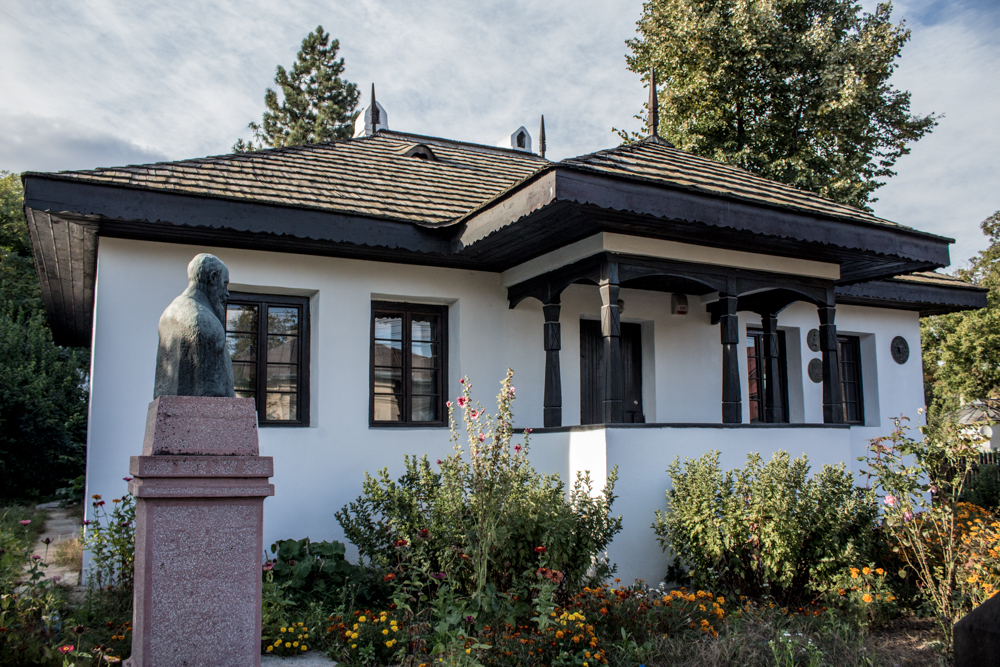|
Pompiliu Eliade
Pompiliu Eliade (April 13, 1869 – May 24, 1914) was a Romanian literary critic and historian. Life Born in Bucharest, he attended primary and high school in his native city, followed by the University of Bucharest, where he obtained a literature degree in 1891. He then studied at the École Normale Supérieure under Ferdinand Brunetière from 1892 to 1895, obtaining a doctorate in literature in 1898. His thesis dealt with French influence on Romania's public spirit during the Phanariote era. Hired as a substitute professor at Bucharest in 1900, he advanced to associate status in 1901 and full professor in 1904. He was the university's first important professor of French.Piru, p. 167 In 1912, he was elected a corresponding member of the Romanian Academy. He was part of the Religious Affairs and Public Education Ministry's permanent council. A member of the National Liberal Party, he was elected to the Assembly of Deputies in 1907, serving for several months. In 1908, he ... [...More Info...] [...Related Items...] OR: [Wikipedia] [Google] [Baidu] |
Romania
Romania ( ; ro, România ) is a country located at the crossroads of Central, Eastern, and Southeastern Europe. It borders Bulgaria to the south, Ukraine to the north, Hungary to the west, Serbia to the southwest, Moldova to the east, and the Black Sea to the southeast. It has a predominantly temperate- continental climate, and an area of , with a population of around 19 million. Romania is the twelfth-largest country in Europe and the sixth-most populous member state of the European Union. Its capital and largest city is Bucharest, followed by Iași, Cluj-Napoca, Timișoara, Constanța, Craiova, Brașov, and Galați. The Danube, Europe's second-longest river, rises in Germany's Black Forest and flows in a southeasterly direction for , before emptying into Romania's Danube Delta. The Carpathian Mountains, which cross Romania from the north to the southwest, include Moldoveanu Peak, at an altitude of . Settlement in what is now Romania began in the Lower Pale ... [...More Info...] [...Related Items...] OR: [Wikipedia] [Google] [Baidu] |
O Scrisoare Pierdută
''O scrisoare pierdută'' (Romanian for "A Lost Letter") is a play by Ion Luca Caragiale. It premiered in 1884, and arguably represents the high point of his career.Vianu, Vol. II, p.180 It was adapted into a 1953 film '' A Lost Letter''. Characters * Nae Cațavencu: lawyer, manager and owner of the „Răcnetul Carpaților” (The Roar of the Carpathians) newspaper, president and founder of the Enciclopedic- Cooperative Society „Aurora Economică Română” (the Romanian Economical Aurora) * Zaharia Trahanache: President of the Permanent Committee, of the Electoral Committee, of the School Committee, of the Agricultural Committee and of other Committees. * Zoe Trahanache: the wife of the above mentioned * Ghiță Pristanda: the town's policeman * Cetățeanul turmentat (the drunk citizen) * Agamemnon (Agamiță) Dandanache: an old warrior from the 1848 Revolution * Tache Farfuridi: lawyer, member of the committees above mentioned * Iordache Brânzovenescu: same * Ștefan Tip� ... [...More Info...] [...Related Items...] OR: [Wikipedia] [Google] [Baidu] |
Costache Conachi
Costache Conachi (; 1777, Țigănești – 1849, Iași) was a Romanian writer noted for emphasizing reason and improving the craft of writing. Biography Born as a member of the Conachi family, he was an affluent from |
Voltaire
François-Marie Arouet (; 21 November 169430 May 1778) was a French Enlightenment writer, historian, and philosopher. Known by his '' nom de plume'' M. de Voltaire (; also ; ), he was famous for his wit, and his criticism of Christianity—especially of the Roman Catholic Church—and of slavery. Voltaire was an advocate of freedom of speech, freedom of religion, and separation of church and state. Voltaire was a versatile and prolific writer, producing works in almost every literary form, including plays, poems, novels, essays, histories, and scientific expositions. He wrote more than 20,000 letters and 2,000 books and pamphlets. Voltaire was one of the first authors to become renowned and commercially successful internationally. He was an outspoken advocate of civil liberties and was at constant risk from the strict censorship laws of the Catholic French monarchy. His polemics witheringly satirized intolerance, religious dogma, and the French institutions of his day. H ... [...More Info...] [...Related Items...] OR: [Wikipedia] [Google] [Baidu] |
Ienăchiță Văcărescu
Ienăchiță Văcărescu (; 1740 – 11 July 1797) was a Wallachian Romanian poet, historian, philologist, and boyar belonging to the Văcărescu family. A polyglot, he was able to speak Ancient and Modern Greek, Old Church Slavonic, Arabic, Persian, French, German, Italian, and Ottoman Turkish. Biography Văcărescu wrote one of the first printed books on Romanian grammar in 1787, an edition which also included a section dedicated to the study of prosody; it was titled ''Observaţii sau băgări de seamă asupra regulilor şi orânduielilor gramaticii româneşti'' ("Observations or Reckonings on the Rules and Dispositions of Romanian Grammar"). He also completed a work on Greek grammar (''Gramatica greacă completă''). Văcărescu's lyrical works take inspiration from both Anacreon and folklore, and center on romantic love. The best-known poems he left behind are ''Amărâta turturea'' ("Embittered Turtle Dove") and the minuscule ''Într-o grădină'' ("In a Garden"). Aside ... [...More Info...] [...Related Items...] OR: [Wikipedia] [Google] [Baidu] |
Symbolism (arts)
Symbolism was a late 19th-century art movement of French and Belgian origin in poetry and other arts seeking to represent absolute truths symbolically through language and metaphorical images, mainly as a reaction against naturalism and realism. In literature, the style originates with the 1857 publication of Charles Baudelaire's '' Les Fleurs du mal''. The works of Edgar Allan Poe, which Baudelaire admired greatly and translated into French, were a significant influence and the source of many stock tropes and images. The aesthetic was developed by Stéphane Mallarmé and Paul Verlaine during the 1860s and 1870s. In the 1880s, the aesthetic was articulated by a series of manifestos and attracted a generation of writers. The term "symbolist" was first applied by the critic Jean Moréas, who invented the term to distinguish the Symbolists from the related Decadents of literature and of art. Etymology The term ''symbolism'' is derived from the word "symbol" which derives fr ... [...More Info...] [...Related Items...] OR: [Wikipedia] [Google] [Baidu] |
Maurice Maeterlinck
Maurice Polydore Marie Bernard Maeterlinck (29 August 1862 – 6 May 1949), also known as Count (or Comte) Maeterlinck from 1932, was a Belgian playwright, poet, and essayist who was Flemish but wrote in French. He was awarded the Nobel Prize in Literature in 1911 "in appreciation of his many-sided literary activities, and especially of his dramatic works, which are distinguished by a wealth of imagination and by a poetic fancy, which reveals, sometimes in the guise of a fairy tale, a deep inspiration, while in a mysterious way they appeal to the readers' own feelings and stimulate their imaginations". The main themes in his work are death and the meaning of life. He was a leading member of La Jeune Belgique group and his plays form an important part of the Symbolist movement. In later life, Maeterlinck faced credible accusations of plagiarism. Biography Early life Maeterlinck was born in Ghent, Belgium, to a wealthy, French-speaking family. His mother, Mathilde Colette Françoi ... [...More Info...] [...Related Items...] OR: [Wikipedia] [Google] [Baidu] |
Jean De La Fontaine
Jean de La Fontaine (, , ; 8 July 162113 April 1695) was a French fabulist and one of the most widely read French poets of the 17th century. He is known above all for his ''Fables'', which provided a model for subsequent fabulists across Europe and numerous alternative versions in France, as well as in French regional languages. After a long period of royal suspicion, he was admitted to the French Academy and his reputation in France has never faded since. Evidence of this is found in the many pictures and statues of the writer, later depictions on medals, coins and postage stamps. Life Early years La Fontaine was born at Château-Thierry in France. His father was Charles de La Fontaine, maître des eaux et forêts – a kind of deputy-ranger – of the Duchy of Château-Thierry; his mother was Françoise Pidoux. Both sides of his family were of the highest provincial middle class; though they were not noble, his father was fairly wealthy. Jean, the eldest child, was ed ... [...More Info...] [...Related Items...] OR: [Wikipedia] [Google] [Baidu] |
Hippolyte Taine
Hippolyte Adolphe Taine (, 21 April 1828 – 5 March 1893) was a French historian, critic and philosopher. He was the chief theoretical influence on French naturalism, a major proponent of sociological positivism and one of the first practitioners of historicist criticism. Literary historicism as a critical movement has been said to originate with him. Taine is also remembered for his attempts to provide a scientific account of literature. Taine had a profound effect on French literature; the 1911 ''Encyclopædia Britannica'' asserted that ''"the tone which pervades the works of Zola, Bourget and Maupassant can be immediately attributed to the influence we call Taine's."'' Out of the trauma of 1871, Taine has been said by one scholar to have ‘forged the architectural structure of modern French right-wing historiography’. Early years Taine was born in Vouziers into a fairly prosperous Ardennes family. His father, a lawyer, his uncle, and his grandfather encouraged hi ... [...More Info...] [...Related Items...] OR: [Wikipedia] [Google] [Baidu] |
Sainte-Beuve
Charles Augustin Sainte-Beuve (; 23 December 1804 – 13 October 1869) was a French literary critic. Early life He was born in Boulogne, educated there, and studied medicine at the Collège Charlemagne in Paris (1824–27). In 1828, he served in the St Louis Hospital. Beginning in 1824, he contributed literary articles, the ''Premier lundis'' of his collected ''Works'', to the newspaper ''Globe'', and in 1827 he came, by a review of Victor Hugo's ''Odes et Ballades'', into close association with Hugo and the Cénacle, the literary circle that strove to define the ideas of the rising Romanticism and struggle against classical formalism. Sainte-Beuve became friendly with Hugo after publishing a favourable review of the author's work but later had an affair with Hugo's wife, Adèle Foucher, which resulted in their estrangement. Curiously, when Sainte-Beuve was made a member of the French Academy in 1845, the ceremonial duty of giving the reception speech fell upon Hugo. C ... [...More Info...] [...Related Items...] OR: [Wikipedia] [Google] [Baidu] |
Grigore Alexandrescu
Grigore Alexandrescu (; 22 February 1810, Târgovişte – 25 November 1885 in Bucharest) was a nineteenth-century Romanian poet and translator noted for his fables with political undertones. He founded a periodical, ''Albina Româneascǎ''. Alexandrescu wrote ''Poezii'' (1832, 1838, 1839) and ''Meditaţii'' (1863), many of which were fables and satires influenced by French literature. Retrieved on March 18, 2008 Works (summary) * ''Poezii'' (1832) * ''Fabule'' (1832) * ''Meditații'' (1835) * ''Poezii'' (1838) * ''Fabule'' (1838) * ''Poezii'' (1839) * ''Memorial'' (1842) * ''Poezii'' (1842) * ''Suvenire și impresii, epistole și fabule'' (1847) * ''Meditații, elegii, epistole, satire și fabule'' (1863)References Externa ...
|
Nicolae Iorga
Nicolae Iorga (; sometimes Neculai Iorga, Nicolas Jorga, Nicolai Jorga or Nicola Jorga, born Nicu N. Iorga;Iova, p. xxvii. 17 January 1871 – 27 November 1940) was a Romanian historian, politician, literary critic, memoirist, Albanologist, poet and playwright. Co-founder (in 1910) of the Democratic Nationalist Party (PND), he served as a member of Parliament, President of the Deputies' Assembly and Senate, cabinet minister and briefly (1931–32) as Prime Minister. A child prodigy, polymath and polyglot, Iorga produced an unusually large body of scholarly works, establishing his international reputation as a medievalist, Byzantinist, Latinist, Slavist, art historian and philosopher of history. Holding teaching positions at the University of Bucharest, the University of Paris and several other academic institutions, Iorga was founder of the International Congress of Byzantine Studies and the Institute of South-East European Studies (ISSEE). His activity also included the ... [...More Info...] [...Related Items...] OR: [Wikipedia] [Google] [Baidu] |







